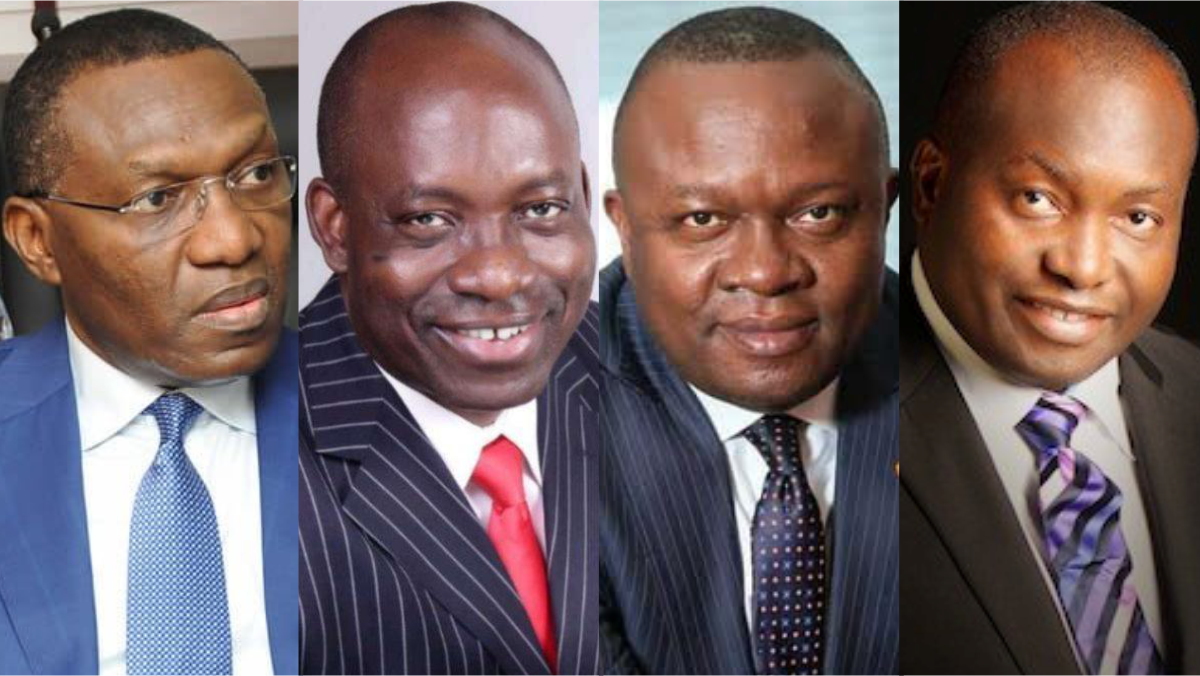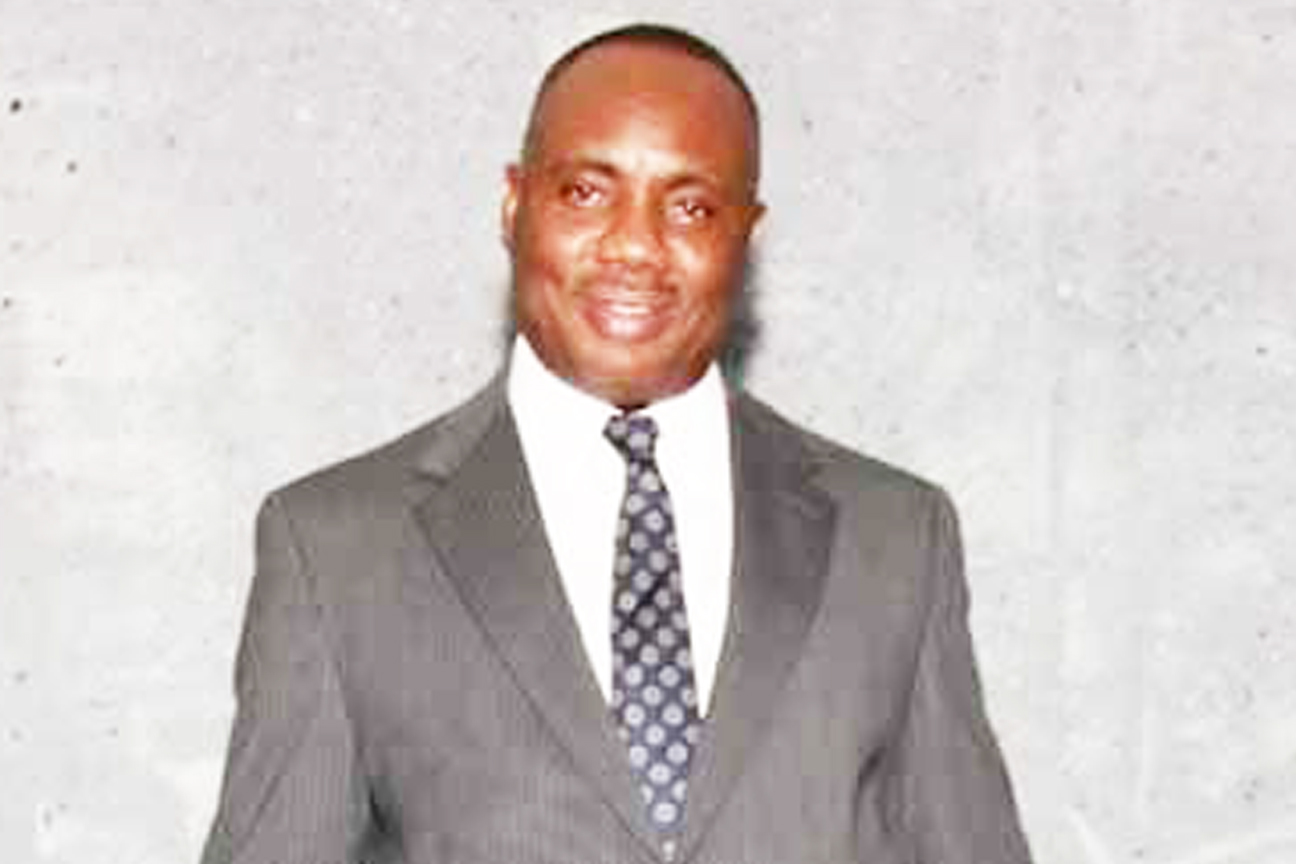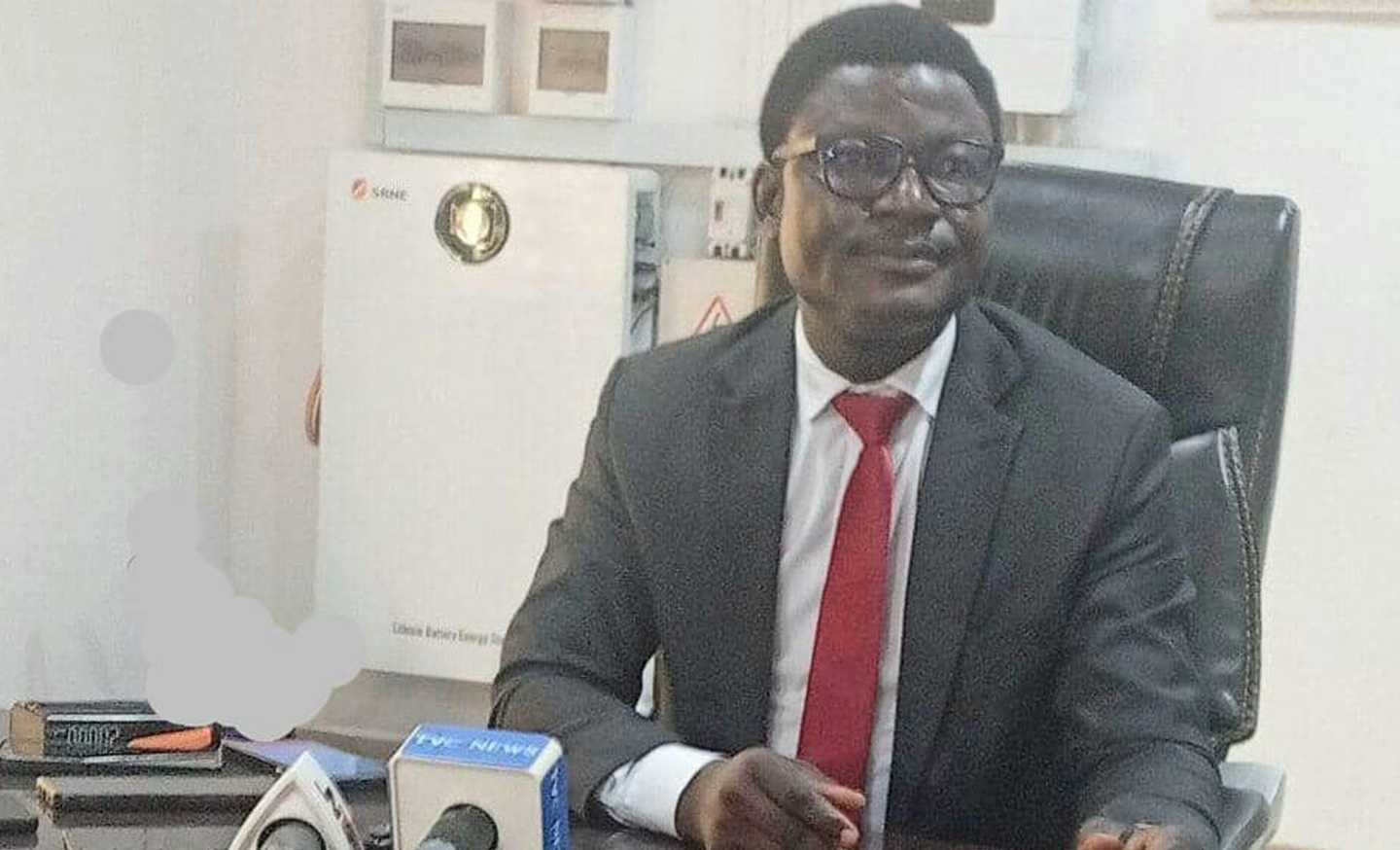Nigeria
OPINION: How Anambra Governorship Electoral Victory is Determined by Elites

Houston
Houston and Owerri Community Mourn the Passing of Beloved Icon, Lawrence Mike Obinna Anozie

Houston was thrown into mourning on September 19, 2025, following the sudden passing of businessman and community advocate Lawrence Mike Obinna Anozie, who peacefully joined his ancestors. Immediate family member in Houston, Nick Anozie, confirmed his untimely death and expressed gratitude for the outpouring of love and condolences from both the Houston and Owerri communities.
Lawrence was born to Chief Alexander and Lolo Ether Anozie of Owerri in Imo State, Nigeria, and will be dearly remembered by family members, friends, and the entire Houston community.
An accomplished accountant, the late Lawrence incorporated and successfully managed three major companies: Universal Insurance Company, LLC, Universal Mortgage LLC, and Universal Financial Services. Through these enterprises, he not only built a thriving business career but also created opportunities for countless individuals to achieve financial stability. His contributions to entrepreneurship and community development will remain a lasting legacy.
According to the family, arrangements for his final funeral rites are in progress and will be announced in due course.
Lawrence will forever be remembered as a loving and compassionate man who dedicated much of his life to uplifting others. He helped countless young Nigerians and African Americans overcome economic challenges by providing mentorship, financial guidance, and career opportunities. His generosity touched the lives of many who otherwise might not have found their footing. A devout Catholic, he was unwavering in his faith and never missed Mass, drawing strength and inspiration from his church community. To those who knew him, Lawrence was not only a successful businessman but also a pillar of kindness, humility, and faith whose legacy of service and compassion will continue to inspire generations.
For more information, please contact Nick Anozie – 832-891-2213
News
Enugu Revenue Leader Details Tax Plans, Commits to Responsible Fund Management

In a bid to address rising public concerns and social media speculations about taxation in Enugu State, the Executive Chairman of the Enugu State Internal Revenue Service (ESIRS), Emmanuel Nnamani, has provided clarifications on the government’s tax policies. During a press briefing in Enugu, Nnamani dismissed what he described as “false and misleading claims” and reassured residents that the government’s fiscal operations are firmly rooted in law, transparency, and public good.
Clarifying Misinformation and Affirming Legality
Nnamani opened the session by stressing that no taxes or levies in Enugu State are imposed outside the provisions of the law. “Taxes and revenues in Enugu State remain within the limits of the law. We do not impose any levies outside what the law permits,” he stated, pointing to the Personal Income Tax Act (as amended) as the guiding legal framework.
He explained that the ESIRS collects personal income tax through two lawful means: Pay-As-You-Earn (PAYE) for those in formal employment, and Direct Assessment for informal sector workers. While compliance among salaried workers has been largely smooth, the agency sometimes employs legal enforcement mechanisms to ensure compliance among self-employed individuals.
Formalising the Informal Sector
A key challenge, he noted, has been bringing the informal sector—especially market traders and transport operators—into the formal tax net. Upon assuming office, his administration discovered that an overwhelming 99% of informal sector actors were not remitting taxes to the state, largely due to the disruptive influence of non-state actors engaged in illegal collections.
In response, the government introduced a consolidated ₦36,000 annual levy for market traders. This amount, payable between January and March, covers all relevant state-level charges, including those by the Enugu State Waste Management Agency (ESWAMA), Enugu State Structures for Signage and Advertisement Agency (ENSSAA), storage fees, and business premises levies. “Once this amount is paid between January and March, the trader owes nothing else for that year,” Nnamani clarified. Traders who fail to pay by March 31 are subject to enforcement.
For street vendors operating outside structured markets, an annual levy of ₦30,000 applies, with ESWAMA charges handled separately. Transport operators such as Okada riders, Keke drivers, minibuses, tankers, and trucks pay via a daily ticketing system.
A Human-Faced Approach to Enforcement
Although the law allows for a 10% penalty on unpaid tax and an interest charge tied to the Central Bank’s Monetary Policy Rate of 27.5%, Nnamani disclosed that the state has adopted a softer, pro-business approach. Instead of the full punitive charges, a flat ₦3,000 penalty is applied in most informal sector cases to promote ease of doing business and encourage voluntary compliance.
Taxation and the Cost of Rent
Addressing growing concerns over rising rent, Nnamani rejected claims linking the trend to state tax policies. He described the issue as a national challenge influenced by supply and demand, rather than fiscal policy.
Citing personal experiences dating back to 2015, he observed that a shift in private development preference – from rental apartments to gated residential estates – has contributed to the housing squeeze. “If we had more high-rise buildings, rent would drop,” he noted. The state government, he added, is taking proactive steps through the Ministry of Housing and Housing Development Corporation to build mass housing and student hostels near institutions like ESUT and IMT, freeing up central city housing and helping moderate rents.
Technology, Transparency, and Trust
In line with its commitment to transparency and digital innovation, the ESIRS has launched a tax calculator on its official portal – www.irs.en.gov.ng – allowing residents to compute their taxes with ease and clarity. “This is about transparency and giving our people confidence,” he said, inviting residents to compare Enugu’s tools with those in more advanced states like Lagos.
Understanding the Cost of Development
Responding to concerns that Enugu has become one of Nigeria’s most expensive states, Nnamani acknowledged the perception but clarified that the temporary inflation is largely demand-driven. With Enugu undertaking widespread infrastructural renewal – including smart schools, primary health centres, and hospitality infrastructure – the surge in construction activity has led to increased demand for building materials like granite and rods, which are sourced from other states.
“Once these projects are completed, demand will drop, and prices will stabilise,” he assured. He emphasised that the projects are visible testaments to what taxpayers’ money can achieve when properly managed.
A Call for Mutual Understanding and Civic Partnership
More than a tax clarification, Nnamani’s address served as a reminder of the symbiotic relationship between citizens and government. He appealed for public understanding, noting that when citizens fulfil their tax obligations, the government can, in turn, provide essential services and infrastructure that uplift everyone.
His message was clear: responsible taxation, managed transparently and invested wisely, is the bedrock of sustainable development. From roads to schools and healthcare to housing, Enugu State is demonstrating how taxpayers’ money, when efficiently deployed, can improve lives and build the future.
Column
The Leadership Deficit: Why African Governance Lacks Philosophical Grounding
Leadership across nations is shaped not only by policies but by the quality of the individuals at the helm. History has shown that the most transformative leaders often draw from deep wells of ethical, philosophical, and strategic thought. Yet, in many African countries—and Nigeria in particular—there appears to be a crisis in the kind of men elevated to govern. This deficit is not merely political; it is intellectual, philosophical, and deeply structural.

There is a compelling correlation between the absence of foundational wisdom and the type of leaders Nigeria consistently produces. Compared to their counterparts in other parts of the world, Nigerian leaders often appear fundamentally unprepared to govern societies in ways that foster justice, progress, or stability.
Consider the Middle East—nations like the UAE and Qatar—where governance is often rooted in Islamic principles. While these societies are not without flaws, their leaders have harnessed religious teachings as frameworks for nation-building, modern infrastructure, and citizen welfare. Ironically, many of Nigeria’s military and political leaders also profess Islam, yet the application of its ethical standards in public governance is nearly non-existent. This raises a troubling question: is the practice of religion in African politics largely symbolic, devoid of actionable moral guidance?
Take China as another case study. In the last four decades, China’s leadership has lifted over 800 million people out of poverty—an unprecedented feat in human history. While authoritarian in structure, China’s model demonstrates a deep philosophical commitment to collective progress, discipline, and strategic long-term planning. In Western democracies, especially post-World War II, leaders often emerged with strong academic backgrounds in philosophy, economics, or history—disciplines that sharpen the mind and cultivate vision.
In stark contrast, African leaders—particularly in Nigeria—are more often preoccupied with short-term political survival than long-term national transformation. Their legacy is frequently one of mismanagement, unsustainable debt, and structural decay. Nigeria, for example, has accumulated foreign loans that could take generations to repay, yet there is little visible infrastructure or social development to justify such liabilities. Inflation erodes wages, and basic public services remain in collapse. This cycle repeats because those in power often lack not just technical competence, but the moral and intellectual depth to lead a modern nation.
At the heart of the crisis is a lack of philosophical inquiry. Philosophy teaches reasoning, ethics, and the nature of justice—skills that are essential for public leadership. Nigerian leaders, by and large, are disconnected from such traditions. Many have never seriously engaged with political theory, ethical discourse, or economic philosophy. Without this grounding, leadership becomes a matter of brute power, not enlightened governance.
The crisis of leadership in Africa is not solely one of corruption or bad policy—it is one of intellectual emptiness. Until African nations, especially Nigeria, begin to value and cultivate leaders who are intellectually rigorous and philosophically grounded, the continent will remain caught in cycles of poverty and poor governance. True leadership requires more than charisma or military rank—it demands the wisdom to govern a society with justice, vision, and moral clarity. Without this, the future remains perilously fragile.
♦ Dominic Ikeogu is a social and political commentator based in Minneapolis, USA.






















